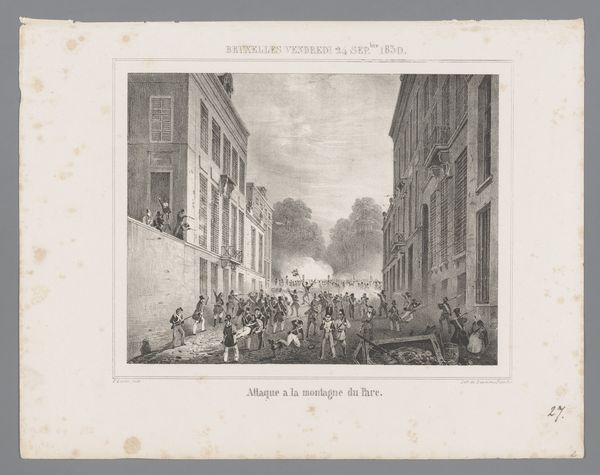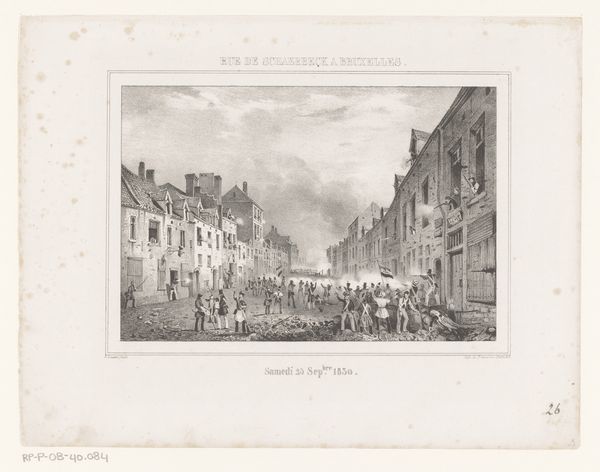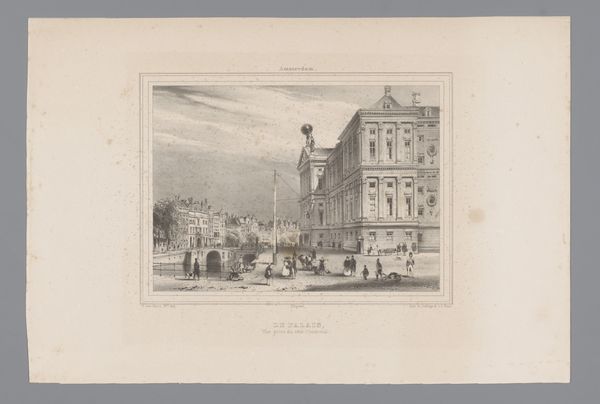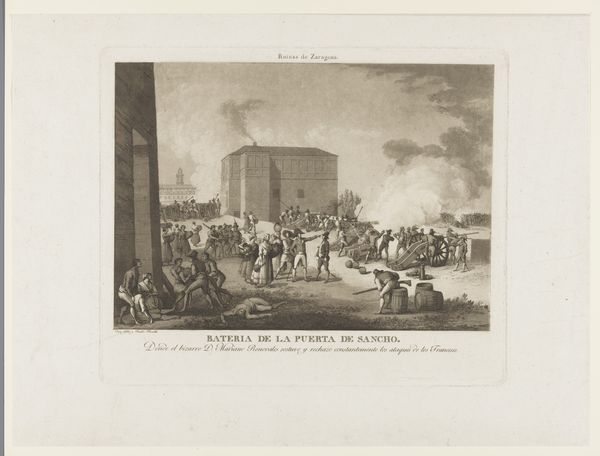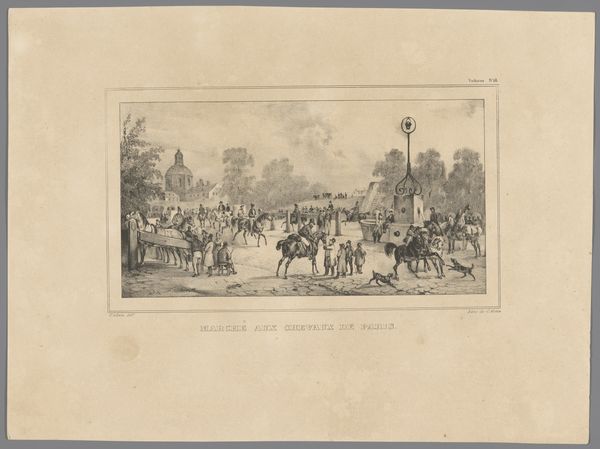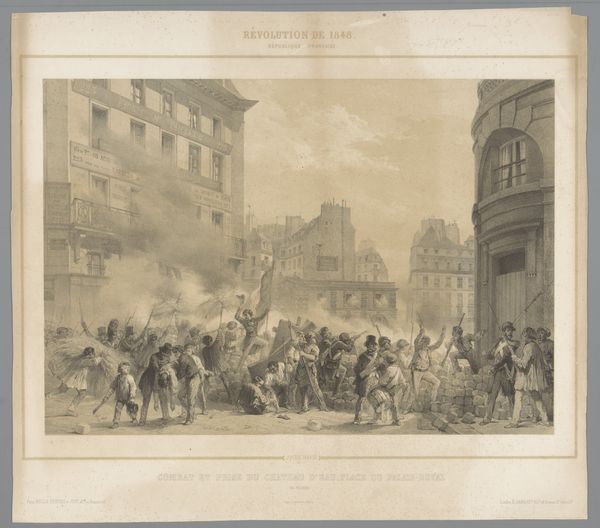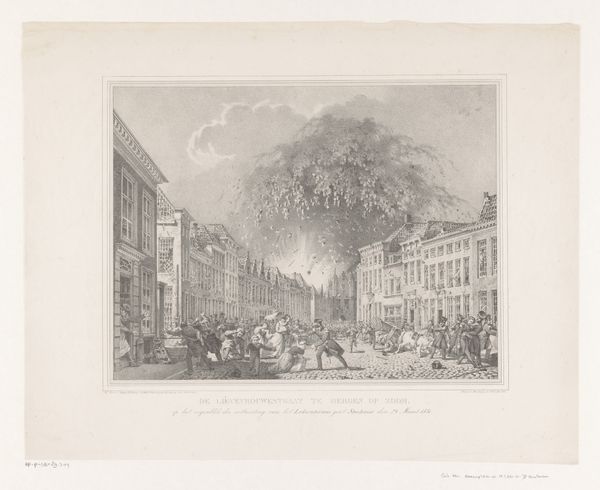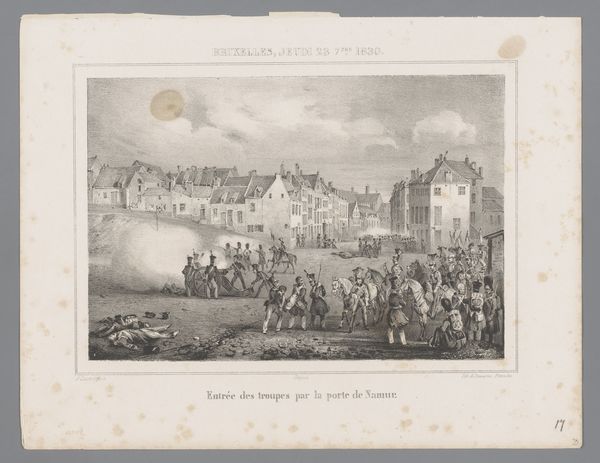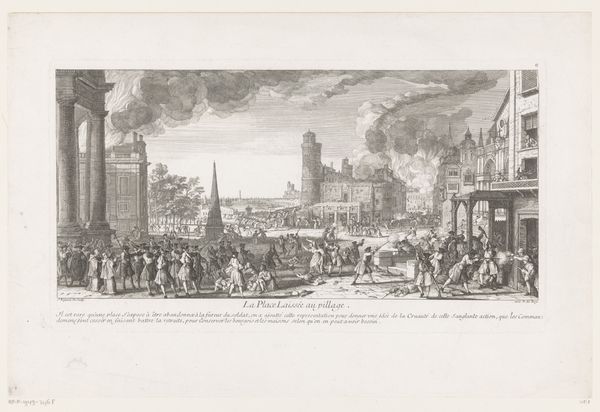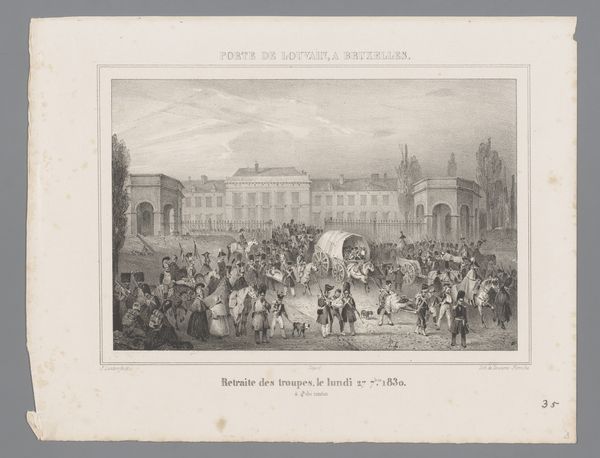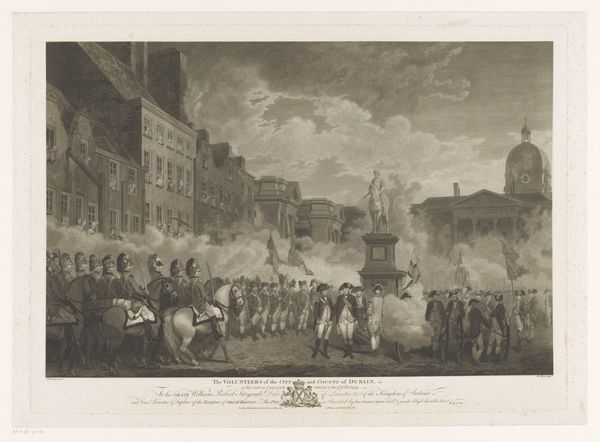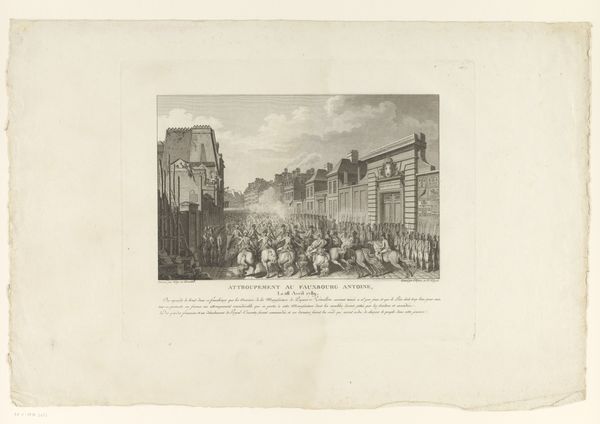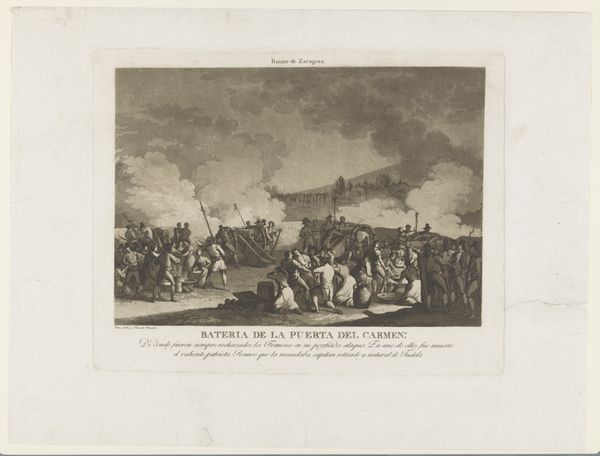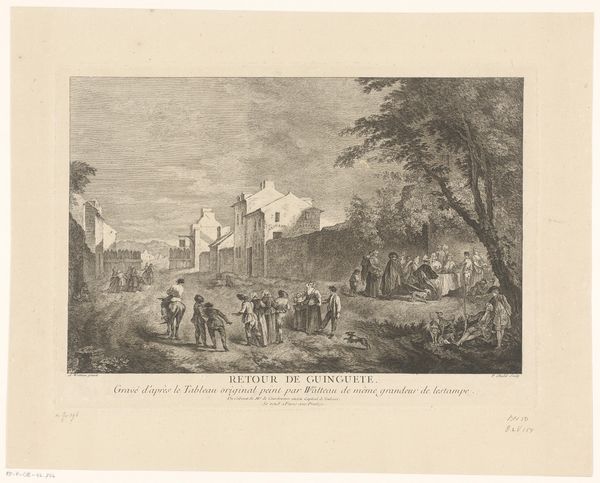
print, engraving
#
narrative-art
# print
#
perspective
#
figuration
#
romanticism
#
cityscape
#
history-painting
#
engraving
Dimensions: height 238 mm, width 305 mm
Copyright: Rijks Museum: Open Domain
Paulus Lauters made this print, “Gevechten bij het Warandepark,” in the 19th century using a technique called etching, a skilled process using acid to cut lines into a metal plate. The print depicts a tumultuous scene: the Belgian Revolution, specifically events of September 26, 1830, at Warandepark. You can see this historical moment rendered through fine, deliberate lines. Consider the labor involved – the careful application of acid, the precision of the artist’s hand. It reflects a specific kind of craft, one far removed from the violence it depicts. This distance is part of its power. It transforms a raw, revolutionary moment into a commodity, an image that could be reproduced and consumed. Thinking about the materiality and the making allows us to understand the print not just as a historical record, but as an object deeply embedded in the social and economic currents of its time. It reminds us that even images of revolution can be captured, contained, and circulated within the established order.
Comments
No comments
Be the first to comment and join the conversation on the ultimate creative platform.
